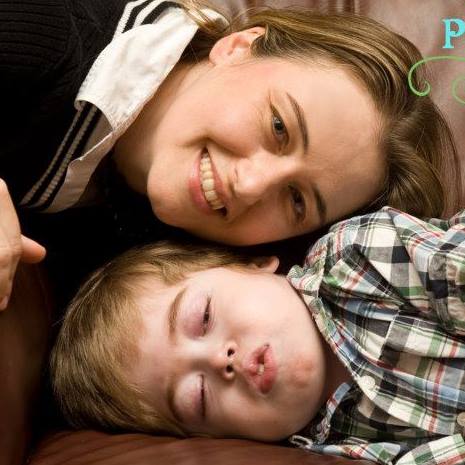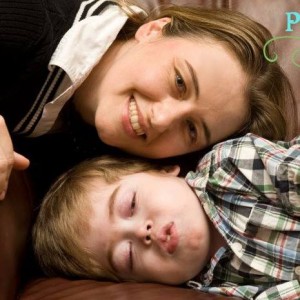6/18/2014
·Enable high contrast reading
The Better the Before, the Better the After

Courageous Parents Network is, at its core, by parents for parents, to help those parents caring for children diagnosed with illnesses for which there is no treatment or cure of for whom treatments have not worked. A professional board of advisors oversees the core content on the site — to ensure we do no harm—but truly, we’re by parents for parents. Parents contribute to what we write, what we do, and how we do it, and we look for parents to join us as collaborators and contributors. One such parent is Oralea Marquardt, whose son William died this past February, only 4 months ago, from a rare genetic illness called GM-1.
I was recently advised by a bereavement professional that it is considered ‘unethical’ to engage bereaved parents in advocacy or advisory roles less than 12-18 months after their child’s death. They need time to process their grief and begin healing, I was told. This makes sense, except it doesn’t apply to Oralea.
I first met Oralea over two years ago when I interviewed her for an educational video I was producing with NTSAD called Parenting a Child with a Life-Limiting Illness. She and her husband Rod sat down, alongside William who was 6 at the time, and shared their experience of what it was like for them and how they were doing: they talked about getting the diagnosis, receiving palliative and hospice care for William, tending their marriage, taking care of their older daughter Kyla.
Fast-forward two years and Oralea and Rod sat down to be interviewed by me again, this time for Courageous Parents Network and this time only a month after William had died. I had thought they wouldn’t want to be interviewed, so incredibly recent was William’s death and thus so raw the new type of grief they were experiencing. But I was wrong. Oralea said they could and would do it. And they did, as you can see from their poignant contributions to CPN’s Video Library, including talking about William’s end of life and what it feels like to be on the other side of an ending they’d been anticipating for more than 6 years.
As I sat with them, I was struck by the sense of centered calm and simple grief that they exuded. Rod and Oralea were clearly sad but they were also so completely … dare I say it … for lack of a better word … FINE. In fact, they were better than fine. They were at ease with life after William. It helped, of course, that they have two healthy children to keep them occupied, but there was more to it than that. They were at peace with everything that had come before.
Oralea is pursuing her Masters in Social Work and is especially interested in pediatric palliative care. I asked her if she’d like to join CPN as an official Parent Contributor and she said Yes. She is remarkable. And yet, I would say her remarkableness is not so very remarkable to me because I recognize much of it as the merciful product of processing her grief before her child died. To me, Oralea embodies what can happen when parents seek counseling and palliative care during their child’s life. Her peace and her healing are what Courageous Parents Network hopes for all such parents and their families.
Here, now, Oralea, who says it best herself:
January 9th, 2007 – Diagnosis Day. A day that will forever be etched in my memory. I can recall every little moment of that day leading up to and away from the words that no parent ever could imagine hearing. The words from a doctor that, in one fell swoop, tore my world apart. My son was going to die and there was nothing I could do to stop it.
Whenever I am asked to describe the time after diagnosis, I often use the words “black” and “darkness”. I remember being in such a fog and the light in my world was gone. I was witnessing my beautiful little boy slowly become victim to a disease that had no cure or treatment. I was desperate to regain the hope of life I once had. I was sad. I was angry. I was consumed with grief.
I could not imagine my life without my son. How could I make it through this? How do I care for a child who I knew was going to die? How would I ever be able to say goodbye to my child – FOREVER? The grief I felt at diagnosis was so intense that I could never imagine being able to breathe again, let alone be able to breathe at all after my child took his last breath. It all seemed so impossible.
Shortly after diagnosis my husband and I sought out palliative care for our son with the goal to give him the best quality of life possible in the short time we would have with him. As palliative services began, we were offered anticipatory grief counseling through our hospice. I had to admit, I was skeptical. I wasn’t sure how talking about my feelings was going to make things any better. How could anything make this better? However, I decided to give it a try just to say I did. The counselor came into our home and I was pleasantly surprised at how understanding and nurturing she was. It felt good to talk about feelings that I hadn’t expressed with anyone before because I feared they would judge me and wouldn’t understand. After our first session, I made a follow-up appointment that led to a standing appointment every month.
Through the anticipatory grief counseling, I learned how to channel my emotions into positive feelings. I learned it was okay to have days of deep sorrow. It was important to acknowledge the intense sadness that I felt when watching my son lose his life. He was my child, I wholeheartedly loved him, and it was perfectly sound to grieve the loss I was experiencing. By acknowledging these emotions and letting myself feel the pain, I was able to begin to heal. Slowly, the fog and darkness around me lifted, and I found joy again. I recognized the blessings that were present each day with my son and a new, more profound love for him emerged. I no longer looked at his life with sadness. His life was meaningful and, with that, came hope.
My son took his last breath in our world 4 months ago. His passing was so very peaceful and everything I had hoped for him. There was no struggle, just a simple exhale. And with his last breath, I too exhaled. The moment I had been dreading for so long was finally upon me. I wasn’t sure what my world would now be like without my boy physically present beside me.
As I began to grieve his death, I worked through the sadness with the same counselor who had been present throughout his life. So much in my world changed the day my son died. The daily routines that were present for 7 years suddenly halted with his death. It felt good to have at least one routine that remained the same. And this routine was a particularly important.
Instead of being consumed by grief and broken like I imagined I would be after my son died, I am instead very much empowered by his life. All the lessons that I was taught while he was living – the lessons that taught me how to cope and care for myself – have allowed me to somehow emerge from the darkness and be okay.
I miss my son with every breath I take. I miss his snuggles, the feel of his skin, his precious smiles and the way he would look at me. I have moments of profound sadness and heartache. But I am not consumed by grief as I had once feared. I am able to wake up each morning and find joy in the day. I so truly believe that because of the emotional support we had immediately after diagnosis and throughout my son’s life, I am able to be okay today and the transitioning to my “new normal” hasn’t left me paralyzed. The work I did while my son was alive allowed me to open my heart and clearly see the beauty in his life. Now that he is gone, the beauty of my son’s life continues and is so very present in everything that I do.



